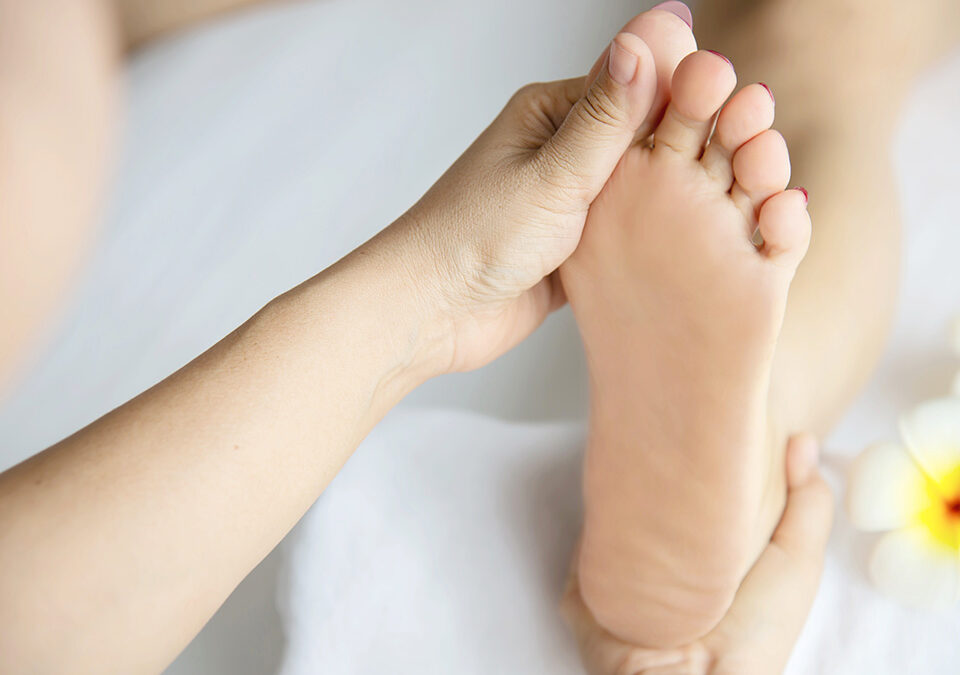
Can Diabetes Affect Children?
April 28, 2021
Stress Is Almost As Bad As Sugar If You Have Diabetes, But You Can Control It
April 28, 2021Body
Diabetes is a medical condition in which the body’s ability to regulate blood sugar levels is impaired. This can result in hyperglycemia or a rise in blood sugar levels, which can cause damage to various organs and bodily functions. Your feet are particularly vulnerable to complications resulting from diabetes because of a type of nerve damage called diabetic neuropathy. Peripheral neuropathy is a type of diabetic neuropathy in which the nerve damage mainly affects the feet, but it can also affect the hands. Because of the risk of complications that can develop as a result of peripheral neuropathy, diabetics need to be extra cautious with foot care.
Risk Factors For Foot Problems In Diabetes
People with diabetes are vulnerable to nerve damage that affects the feet, which increases the risk of foot injuries and other problems. However, there are some conditions that can increase the risk of foot problems. These include:
- Fluctuating or poorly managed blood sugar levels
- Obesity or excess body weight
- Age of 40 or over
- High blood pressure
- High cholesterol
Diabetics are vulnerable to circulatory and wound healing problems, which can increase the risk of foot ulcers, infections, and other foot problems.
Why Is Foot Care Important?
The combination of peripheral artery disease and peripheral neuropathy, which impairs blood flow and causes nerve damage in the feet respectively, makes diabetics especially vulnerable to complications that affect the feet. If foot injuries, infections, and other problems are not treated promptly, there is also a risk of tissue death or gangrene, which can lead to loss of toes or feet, and can even turn life threatening.
This makes it important for diabetes patients to take preventive steps to avoid foot problems. Proper management of diabetes and blood sugar levels is of course the most important measure and includes:
- Regular medical exams and checking ABCs (A1c, blood pressure, and cholesterol)
- Daily monitoring of blood sugar levels
- Exercising regularly
- Having a balanced diet that includes fruits and vegetables
- Strict adherence to prescribed medications
In addition to managing diabetes, you should also adopt a foot care routine to lower the risk of complications.
Steps For A Daily Foot Care Regime
Examine your feet regularly
Inspect your feet and toes carefully for any sores, redness, cuts, blisters, or bruises. Check the top, sides, soles, heels, and the area in between the toes specifically.
Maintain good foot hygiene
Wash your feet daily with warm water and a mild soap and make sure to dry them well after washing.
Never go out barefoot
Always wear closed-toe shoes, slippers, or any comfortable footwear of your choice while going out.
Trim your toenails
Trim your toenails and gently smooth any sharp edges with a nail file. Avoid cutting the corners shorter than the rest of the nails.
Maintain blood flow
Put your feet up when you are sitting and gently stretch and move your toes for a few minutes several times throughout the day.
Warning Signs Of Foot Problems:
It’s important to recognize the early warning signs of foot problems so that you can seek swift medical attention before the problem turns serious. Keep a lookout for the following:
- Pain and cramps in the legs, buttocks, thighs, or calves during any physical activity.
- Tingling or burning sensation in your feet.
- Loss of sensation or inability to feel hot or cold in the foot area.
- A change in the shape of your feet over time.
- Loss of hair on your toes, feet, and lower leg region.
- A change in the color or temperature of your feet.
- Thickened toenails, discoloration, itchiness, or any other signs of infection.
While all of these measures will help to lower the risk of foot complications, you shouldn’t hesitate to reach your doctor if you suffer from any kind of foot injury or infection that does not heal within a couple of days. Additionally, it would be a good idea to go for regular podiatric checks to ensure that foot problems are detected early before there is any chance for complications to develop.




